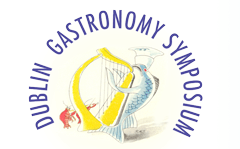Start Date
28-5-2024 11:45 AM
End Date
28-5-2024 12:00 PM
Description
Although the first Hungarian-language Holocaust cookbook, entitled Recipes for Survival (ed. Szilvia Czingel), was only published in 2013, it brought thus far unknown Hungarian primary sources (secretly hand-written recipe scraps from the Lichtenwörth concentration camp, 1944-1945) and issues (such as fantasising about cooking and recipe writing as survival strategies) into the foreground of Holocaust research as well as food history scholarship. Among others, Louise O. Vasvári (2014 and 2016) and András Koerner (2018) have explored the socio-cultural significance of these Jewish women’s reminiscences within the context of Holocaust Life Writing and Jewish Cuisine, respectively. And while they both highlighted that the recipes in Czingel’s collection were created by five assimilated women who had not kept kosher hence revealing strong Hungarian culinary influences, their main focus was not on how the changing identities of secularised Jews may have influenced their cooking/eating habits. The present paper will analyse the recipe collection of Mrs. István Endrei, Hedvig Weiss, within the context of social and culinary changes in Hungary in the first half of the twentieth century. The recipes from the concentration camp will be examined in comparison with Jewish (kosher) cookbooks and (Gentile) Hungarian cookbooks published before the end of the Second World War to trace the reciprocity that characterised borrowed dishes and customs. Ultimately, the paper will aim to reconstruct the links connecting individual and collective identities, belonging, and memories of food while enduring traumatic experiences.
Creative Commons License

This work is licensed under a Creative Commons Attribution-NonCommercial-Share Alike 4.0 International License.
DOI
https://doi.org/10.21427/fjnz-ep95
Memories of Food and (Be)longing: Secularised Jewish Recipes in Hungary before 1945
Although the first Hungarian-language Holocaust cookbook, entitled Recipes for Survival (ed. Szilvia Czingel), was only published in 2013, it brought thus far unknown Hungarian primary sources (secretly hand-written recipe scraps from the Lichtenwörth concentration camp, 1944-1945) and issues (such as fantasising about cooking and recipe writing as survival strategies) into the foreground of Holocaust research as well as food history scholarship. Among others, Louise O. Vasvári (2014 and 2016) and András Koerner (2018) have explored the socio-cultural significance of these Jewish women’s reminiscences within the context of Holocaust Life Writing and Jewish Cuisine, respectively. And while they both highlighted that the recipes in Czingel’s collection were created by five assimilated women who had not kept kosher hence revealing strong Hungarian culinary influences, their main focus was not on how the changing identities of secularised Jews may have influenced their cooking/eating habits. The present paper will analyse the recipe collection of Mrs. István Endrei, Hedvig Weiss, within the context of social and culinary changes in Hungary in the first half of the twentieth century. The recipes from the concentration camp will be examined in comparison with Jewish (kosher) cookbooks and (Gentile) Hungarian cookbooks published before the end of the Second World War to trace the reciprocity that characterised borrowed dishes and customs. Ultimately, the paper will aim to reconstruct the links connecting individual and collective identities, belonging, and memories of food while enduring traumatic experiences.
